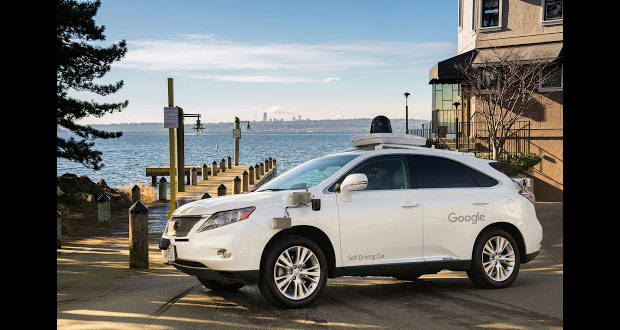Some major players in both the new and old economies on Tuesday announced an alliance to pave the way for self-driving cars in America.
Ford, Google, Lyft, Uber and Volvo raised the curtain on their Self-Driving Coalition for Safer Streets, which will work with lawmakers, regulators and the public to raise awareness of the safety and societal benefits of self-driving vehicles.
Self-driving vehicles could significantly reduce the severity and frequency of auto accidents by removing human error from the equation, according to the U.S. Department of Transportation, which estimates that 94 percent of road accidents are caused by human error.
Some “1.3 million people die every year in traffic accidents — many of them young people,” Uber said in a statement provided to TechNewsWorld by spokesperson Molly Spaeth.
“Self-driving cars can help save millions of lives as well as cut congestion in our cities,” it continued. “That’s an exciting future, and one Uber intends to be a part of.”
Self-driving technology also can enhance public safety and mobility for the elderly and disabled, reduce traffic congestion, improve environmental quality and advance transportation efficiency, according to the coalition.
Old Hand at Megaphone
To act as the coalition’s counsel and spokesperson, the tech and auto companies picked Washington insider David Strickland, who was head of the National Highway Traffic Safety Administration from 2010 to 2014.
“Self-driving vehicle technology will make America’s roadways safer and less congested,” he said in a statement.
“The best path for this innovation is to have one clear set of federal standards,” Strickland continued, “and the coalition will work with policymakers to find the right solutions that will facilitate the deployment of self-driving vehicles.”
It appears that the coalition wants to avoid regulation that could choke innovation in the self-driving market.
“They’re telling the government not to be overly prescriptive,” noted Roger C. Lanctot,associate director of the global automotive practice at Strategy Analytics.
“They’re saying, ‘Don’t tell us what to do or not to do. Tell us the objective you want to see from automated-driving and let us worry about how we get that done,'” he told TechNewsWorld.
Preventing Something Stupid
The combination of Information Age and Industrial Age companies can give the coalition clout in shaping policies that will govern the self-driving auto industry.
“It has the potential to stop the government from pushing something unnecessary or limiting or stupid,” Lanctot said. “It can also push the government to take a leadership position.”
Government participation is essential in the development of the self-driving auto, maintained Charles King, principal analyst at Pund-IT.
“Government agencies need to be actively involved in the process. In fact, without their support, autonomous vehicles will hit a literal wall,” he told TechNewsWorld.
“For that reason,” King added, “it’s interesting that the coalition named David Strickland, former head of the NHTSA, as its counsel and spokesperson. That was an extremely smart move.”
Benefits of Cooperation
Self-driving auto technology has reached the point where a road map is necessary, he noted.
“In the development of most every new class of business or product, continuing forward motion requires interested parties and businesses to sit down and create a workable set of rules,” King explained.
“The progress of autonomous vehicles has mostly resulted from the efforts of individual companies,” he said, “but if self-driving cars are to enter the mainstream, those parties will need to cooperate and collaborate.”
That could be challenging for the coalition whose members don’t always see eye to eye. Google’s idea of what a self-driving car should be — one without a steering wheel or pedals to control braking and acceleration — differs from Ford’s and Volvo’s vision for the technology, and the conflicts between Uber and Lyft are well documented.
“You have a variety of different approaches,” Strategy Analytics’ Lanctot said. “I think that’s healthy.”
Tesla MIA
Noticeably missing from the founding members of the coalition is Tesla.
“Tesla is the missing link in the conversation,” Lanctot noted. “Their use-at-your-own-risk approach to this thing is a total affront to the incumbent automotive industry.”
Getting the technology right from the start will be important for the industry’s success, noted Tom Caporaso, CEO ofClarus Commerce.
“This technology has to be spot on to make sure there are no malfunctions,” he told TechNewsWorld. “As a pure trend, though, self-driving vehicles are where the auto space is headed.”






















































